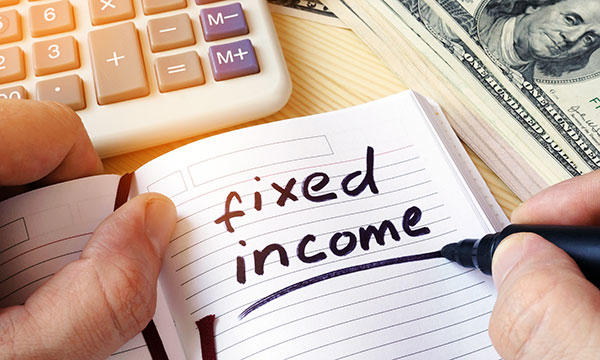Grow wealth over time using our personal financial services, dedicated to fixed-income investments
Fixed income investments broadly refer to investment in certain types of security that yield investors a fixed income either in the form of interest or dividend until the time of its maturity At the time of maturity, investors receive the principal amount that they had initially invested along with some interest. The most preferred bonds are corporate and—government bonds under the category of fixed-income products
Investing in equities may sometimes pay nil returns or even negative returns because equities are based on some completely unpredictable factors and variable-income securities, where payments can change based on some underlying measures—but the payments of a fixed-income security are known to be regular, and the amount is known in advance.

- There are stable returns offered by steady income products than stocks
- Fixed income refers to using assets and securities in such a way that gives a fixed amount of cash flow to investors either in the form of dividend or fixed interest
- It is a very steady income stream
- At the time of maturity in case of many fixed income securities, the complete principal amount invested initially is paid to investors along with interest on their investment
- Corporate and government bonds are the most preferred fixed-income products
- In case of a company’s bankruptcy, preference is given to fixed-income investors over common stockholders for payment
- Treasury bills or (T-bills) are bought at a price much lower than their face value. At the time of maturity, investors are paid an amount equal to the face value. The difference is the income of investors.The maturity period usually comes between 2 to 10 years. At the time of maturity, investors are paid the principal amount plus the half-yearly payments of interest each year for the total time they hold the note
- The investors are protected from inflation by investing in Treasury Inflation-Protected Securities (TIPS) because the principal amount of a TIPS bond gets adjusted with deflation and inflation
Investing in low risk yet steady income products
- Fixed income products such as fixed deposit schemes, debentures, Government or Infrastructure bonds, Special savings scheme carry minimal market risks
- There can be a steady flow of income from these investments, which can be received at fixed intervals
- Most such products have good returns. They can balance out the riskier investment ventures in your portfolio
